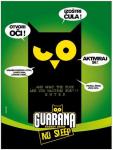Stopanni had a similar article on this paper in Flex. Overall I think people are making way to big of deal over an acute study (much in the way they use to for acute testosterone responses). Even the authors say the correlation is weak.
Eur. J. Appl. Physiol., 2012 vol. 112(7) pp. 2693-702
Associations of exercise-induced hormone profiles and gains in strength and hypertrophy in a large cohort after weight training
West, DW; Phillips, SM
The purpose of this study was to investigate associations between acute exercise-induced hormone responses and adaptations to high intensity resistance training in a large cohort (n = 56) of young men. Acute post-exercise serum growth hormone (GH), free testosterone (fT), insulin-like growth factor (IGF-1) and cortisol responses were determined following an acute intense leg resistance exercise routine at the midpoint of a 12-week resistance exercise training study. Acute hormonal responses were correlated with gains in lean body mass (LBM), muscle fibre cross-sectional area (CSA) and leg press strength. There were no significant correlations between the exercise-induced elevations (area under the curve-AUC) of GH, fT and IGF-1 and gains in LBM or leg press strength. Significant correlations were found for cortisol, usually assumed to be a hormone indicative of catabolic drive, AUC with change in LBM (r = 0.29, P < 0.05) and type II fibre CSA (r = 0.35, P < 0.01) as well as GH AUC and gain in fibre area (type I: r = 0.36, P = 0.006; type II: r = 0.28, P = 0.04, but not lean mass). No correlations with strength were observed. We report that the acute exercise-induced systemic hormonal responses of cortisol and GH are weakly correlated with resistance training-induced changes in fibre CSA and LBM (cortisol only), but not with changes in strength.
User Tag List
Results 21 to 30 of 67
-
02-27-2013 #21Established Member Feedback Score 0



- Join Date
- Nov 2012
- Posts
- 146
- Mentioned
- 0 Post(s)
- Tagged
- 0 Thread(s)
For those that buy into the one-hour rule
-
02-27-2013 #22Super Moderator Feedback Score 0




- Join Date
- Nov 2012
- Location
- Oregon
- Posts
- 2,617
- Mentioned
- 0 Post(s)
- Tagged
- 0 Thread(s)
One thing not really differentiated here in the discussion is training style. Heavy, lower rep sets with several minutes between them will no doubt affect a cortisol response different from high rep sets done 30-60 seconds apart, as would a briskly paced jog/run if all 3 activities were done for 60, 90, or 120 minutes.
All advice given is for entertainment value only. And it's free. Take it for what it's worth.
-
02-27-2013 #23Established Member Feedback Score 1 (100%)



- Join Date
- Nov 2012
- Location
- Texas
- Posts
- 720
- Mentioned
- 0 Post(s)
- Tagged
- 0 Thread(s)
Cortisol is not going to be low after training. It will always be elevated since it is a response to metabolic stress, but to what level depends upon a myriad of factors. Cortisol modulators also are generally not marketed as test boosters since they will only increase the T:C ratio and not so much the test levels themselves.
As far as training length goes, my geared sessions last upwards of 3 hours each since I'm working up to very high weights in the >90% range where extra rest is needed. I can guarantee you that there is no way in hell that anyone could knock these out in less than 90 minutes. I'm curious as to what exactly you are looking for in these draws, the frequency, the phase of training, etc.M. Ed. Ex Phys
-
02-28-2013 #24A 1k Club Member Feedback Score 0




- Join Date
- Nov 2012
- Posts
- 1,026
- Mentioned
- 1 Post(s)
- Tagged
- 0 Thread(s)
Training wise- I cant compare to you, and majority of other readers here cant either, you are different league altogether. You set a goal for yourself, and you are determined to get there- no matter what and you are aware of possible consequences and ready to accept them if they happened. I actually respect that- but majority of others if they try to follow your route will have their fingers burned.
As for cortisol- I said that if cortisol after exercise is too low which is bit different than low- if its low than they should report to ER immidiately. If its not where it should be (burned adrenals) than they will not feel to well, majority will feel kind-of depressed. And also body will pump in adrenaline which is also not good- it will cause sleep issues, raised blood pressure etc... and will prevent or at least make hormonal recovery very difficult.
Lot of research comparing weightlifters training an hour or so or less had increase in test. levels, on other hand endurance athletes have opposite effect. I will feel free to say that endurance trainings are quite unhealthy.
As from my own research- I compared long training 90 mins 3X a week, agains 4 trainings a week with 60-65 min trainings 4X a week.
In long training sessions tt would be around 100 ng/dl lower- but considering that my body can make only 30-35 ng/dl of surpluss it means that I need 3 extra weeks of "good conditions" (complete rest or light training, enough sleep) to recover to normal levels.
Obvioulsy, all that is different if someone is on cycle... But again, here I'm representing "average Joe" or random guys- and when these guys get overexcited, usualy it does not end up good.
BTW- you may find this study interesting:
Hormonal responses to consecutive days of heavy-resistance exercise with or without nutritional supplementationLast edited by Jelisej; 02-28-2013 at 11:02 AM.
-
02-28-2013 #25Established Member Feedback Score 1 (100%)



- Join Date
- Nov 2012
- Location
- Texas
- Posts
- 720
- Mentioned
- 0 Post(s)
- Tagged
- 0 Thread(s)
That didn't answer anything that I asked. Time in and of itself doesn't tell us anything regarding the actual training, the length of each phase, the volume/intensity, nutrition, etc. There are many variables that play into this and time spent in the gym is only one of them and is actually not the most important aspect as overall conditioning of the person plays a role in the time and rest needed to complete a given bout of exercise. Also, you would need bloods from before, during, and after each phase with the same conditions before each blood draw as test levels themselves fluctuate throughout the day.
It really seems like that, in your particular instance, that your work capacity is very low if it takes your body that long to adapt and that long of a recovery period needed as well. Work capacity/conditioning is something that very few people discuss these days because it has been ignored as one of the deciding factors of recovery and improvement. BTW, I am not talking about going for a jog when I say increasing work capacity.M. Ed. Ex Phys
-
02-28-2013 #26Super Moderator Feedback Score 2 (100%)




- Join Date
- Nov 2012
- Location
- OH CANADA
- Posts
- 1,383
- Mentioned
- 0 Post(s)
- Tagged
- 0 Thread(s)
interesting
personally i dont agree, and i dont care how many reports are posted of shifts in bloods, cortisol, t levels ect, theres a point where for me, some things are over analyzed.......a hard/intense 90min workout does me good......i play sports also, more so younger, and spent hours on the field, never thought it was unhealthy
-
02-28-2013 #27Super Moderator Feedback Score 0




- Join Date
- Nov 2012
- Location
- Oregon
- Posts
- 2,617
- Mentioned
- 0 Post(s)
- Tagged
- 0 Thread(s)
Re: For those that buy into the one-hour rule
Echos my sentiments above. I've seen guys spend 3 hours in the gym and get very little work done. Conversely, when I'm pressed for time, I'll squeeze a 90 minute workout into 45 minutes and I can tell a big difference in the amount of intensity (assuming intensity is defined as equal work in less time or more work in equal time).
All advice given is for entertainment value only. And it's free. Take it for what it's worth.
-
02-28-2013 #28Established Member Feedback Score 0



- Join Date
- Nov 2012
- Posts
- 165
- Mentioned
- 0 Post(s)
- Tagged
- 0 Thread(s)
The cortisol timeframe is fine and dandy, but who in their right mind wants to stay at the gym any longer than an hour or hour and a half at the time? If your spending three hours then what kind of life is that?
24 hours in a day
8 hours work, add an hour to get ready for work in the morning 9 hours
3 hours in the gym
8 hours of sleep
that leaves you with 4 hours a day? If there is any extra benefits for staying at the gym longer are the benefits that much greater than someone who only trains an 1 1/2 hours and is it worth not having a life because of the benefits?
-
02-28-2013 #29
-
02-28-2013 #30Established Member Feedback Score 0



- Join Date
- Nov 2012
- Posts
- 165
- Mentioned
- 0 Post(s)
- Tagged
- 0 Thread(s)




 Reply With Quote
Reply With Quote







